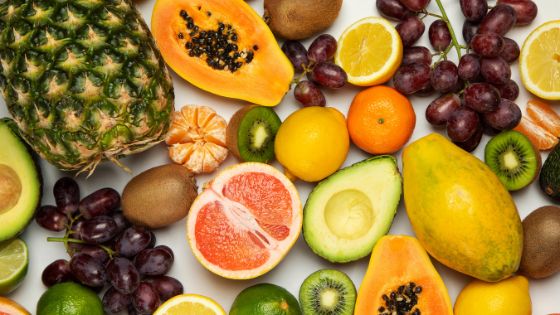How can fruits help lower blood pressure? It all comes down to how our bodies react to the natural sugars found in these foods. Consuming a diet high in sugar, whether naturally occurring or added by manufacturers, can lead to insulin spikes and inflammation in the body, both of which have been linked to higher blood pressure levels.
Fortunately, many fruits are rich in dietary fiber, which helps to slow down the digestion process of sugar and makes it easier for the liver to remove it from the bloodstream.


Citrus fruits
Lemons, oranges, and grapefruits are all great options for lowering blood pressure. These fruits are high in Vitamin C, which has been shown to lower blood pressure in studies. In addition, citrus fruits are a good source of potassium, another nutrient that can help lower blood pressure. Try adding a few slices of lemon or grapefruit to your water each day, or enjoy a glass of fresh orange juice.
Prunes
If you’re looking for fruit to help lower your blood pressure, you may want to try prunes. Prunes are high in potassium and fiber, which have been shown to help lower blood pressure. They’re a good source of antioxidants and have been linked to a lower heart disease risk.
Bananas
According to a National Institutes of Health study, eating bananas can help lower blood pressure. The potassium in bananas helps to regulate blood pressure by counteracting the effects of sodium.
Bananas are also a good source of fiber and magnesium, which have been shown to help lower blood pressure. If you want to lower your blood pressure, add some bananas to your diet.
Cherries
According to a recent study, eating cherries can help lower blood pressure. The anthocyanins in cherries are thought to be responsible for this effect. In the study, participants who ate about 10 cherries a day had lower blood pressure than those who didn’t eat any cherries. Plus, the cherry eaters also had less stiffness in their arteries.
These results suggest that eating cherries may help keep your blood vessels healthy and improve blood flow. If you want to lower your blood pressure, add some cherries to your diet!
Grapefruit
According to a recent study, grapefruit is one of the best fruits for lowering blood pressure. The study, conducted by the Chughtai lab in Pakistan, found that grapefruit can lower blood pressure by up to 7 mmHg. The study also found that grapefruit is more effective at lowering blood pressure than other popular fruits such as apples and bananas.
Strawberries
Lab test results show that strawberries can help lower blood pressure. In one study, people who ate three or more servings of strawberries per day had lower blood pressure than those who did not eat strawberries.
The exact mechanisms by which strawberries lower blood pressure are unknown, but it is thought that the antioxidants in strawberries may play a role. If you want to lower your blood pressure, eat strawberries! You can get them fresh, frozen, or even dried.
How many fruits should I eat in a day?
According to the American Heart Association, you should aim to eat four to five servings of fruit per day. That’s about two cups’ worth for most people. The AHA also recommends eating various fruits rather than focusing on one in particular. Here are some of the best fruits for lowering blood pressure, based on lab tests
What foods should you avoid if you have high blood pressure?
According to the Chughtai lab report, some of the best fruits for lowering blood pressure include apples, watermelons, and pomegranates.
Meanwhile, foods you should avoid with high blood pressure include salty foods, processed meats, and sugary drinks. You can help keep your blood pressure in check by making simple changes to your diet.
Avoid foods and drinks for hypertension
Chughtai lab Lahore and chughtai test report suggests avoiding sugary drinks, processed meats, refined carbs, and unhealthy fats. According to Chughtai lab online reports, these foods and drinks can increase blood pressure.
So, cutting back on them may help lower your blood pressure. Instead, focus on eating plenty of fruits and vegetables. These are packed with nutrients that can help reduce blood pressure.








